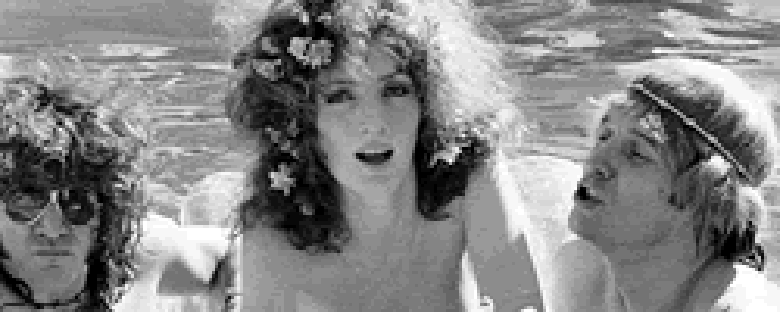Reviews
Ah, Viva. Born Susan Hoffmann, she was the Warhol superstar who was always second banana to someone more glamorous, more kooky, or more talented. Dwarfed by the towering presence of Edie Sedgwick and the stunning charm of Candy Darling, upstaged by the amphetamine-fueled antics of Ondine and Taylor Mead, pushed to the edge of the film frame by the fame-hungry Gerard Malanga and Joe Dallesandro, the only way for Viva to get any attention was to take her clothes off, which she did quite famously in Warhol’s 1969 Blue Movie. That same year, she finally got a chance to act in two roles a little more meaningful and substantial, if just as nutty, in Agnès Varda’s Lions Love and John Schlesinger’s Midnight Cowboy, but she was upstaged in the latter yet again by another Warhol hanger-on, Sylvia Miles. Riding this wave of activity, her public profile was heightened even further by the publication of her slim roman à clef about her Factory days, Superstar, in 1970. Later in 1970s, she had the nerve to begin acting in more mainstream Hollywood productions like the Woody Allen-scripted Play it Again, Sam and the Kris Kristofferson vehicle Cisco Pike. Another book, The Baby: a Video Novel, followed in 1975. I have the dubious misfortune of having no idea what the book is about, but I can tell you that it was edited at the Knopf publishing house by the same woman who edited Margaret Drabble. Viva must have been a bracing change of pace. Viva has continued to write, most notably a children’s book about her daughter, Gaby Hoffmann, with whom she lived at the Chelsea Hotel until 1993. Viva gets trotted out every now and again when someone gets the idea into their heads that the world need another documentary on Andy Warhol, but the last time she acted was in a small part in 1993’s Mel Gibson male weepie, The Man Without a Face. In the film, she has the pleasure of acting with her daughter, Gaby. Viva’s elder daughter, Alexandra Auder, is also an actress.
Varda’s film depends heavily on the considerable charisma of Viva, but it is also bolstered by the amusing comedic frolics of Jim Rado and Jerry Ragni, the creators of the musical, Hair. The best parts in the film, however, feature the filmmaker Shirley Clarke. Outfitted in what appear to be Truman Capote’s hand-me-down hats plus sunglasses and costumes from the filming of Modesty Blaise, Clarke declaims on film producers, Bobby Kennedy, and Hollywood before memorably turning the tables on Agnès Varda.
Lions Love has much more in common with the late-1960s and early-1970s histrionic melodramas of George and Mike Kuchar, Curt McDowell, and Paul Morrissey, the Ronald Tavel-scripted films of Andy Warhol, or possibly John Waters than it does with anything that came from the French New Wave. At the same time, it could only have been directed by Agnès Varda. Her characteristic topsy-turvy melding of documentary and fiction as well as her inimitable mordant humor and ambivalence to the audience’s interpretation of the film’s “message” are attendant, even if the southern California setting throws you off. The film is also so packed to bursting with loopy, quotable lines, you may have trouble deciding which is your favorite.
Lions Love came about when Varda’s husband Jacques Demy was given the opportunity to film Model Shop in the United States. Varda traveled with him and started an interesting diversion in her career marked by a looser, freer filmmaking style and a more explicit embrace of politics in her filmmaking. Two shorts preceded the making of Lions Love: Oncle Yanco, a documentary film about Varda’s hippie-painter distant cousin; and Black Panthers, another documentary, this time closer to the cinéma vérité tradition, that covers a “Free Huey Newton” rally, among other things. Lions Love is the culmination of this period in Los Angeles. Neither Lions Love nor Demy’s Model Shop could be counted among their best works. At best, they are historical curiosities that explore the alien culture of late 1960s Hollywood from the perspective of two masterful French filmmakers. Varda and Demy would return to France reinvigorated and make some of their best work immediately thereafter, Varda with the visionary Nausicaa and Demy with the enchanting fairy tale, Peau d’âne.
We don’t do comments anymore, but you may contact us here or find us on Twitter or Facebook.



